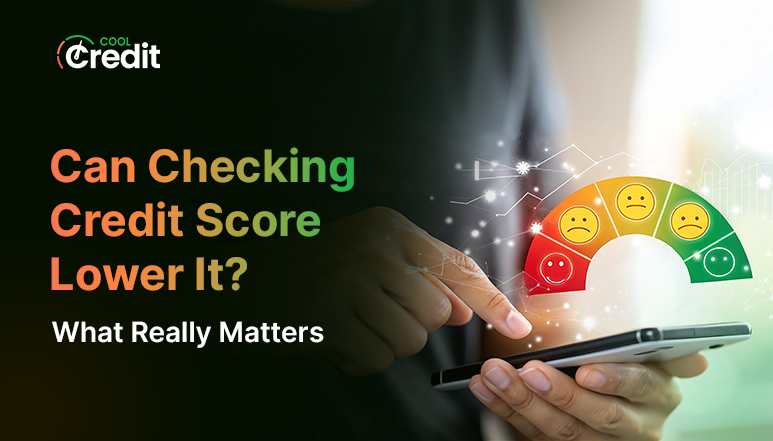
Does Requesting a Credit Increase Hurt Your Score? Here’s the Truth
Credit limits are crucial for your financial flexibility, but requesting a higher credit limit often brings questions. You might wonder, “Does requesting a credit increase hurt your score?” In reality, the outcome depends on how the request is reviewed and how you handle your spending afterward. Understanding the potential risks and benefits can help you determine if a credit line increase is right for you.
Does Requesting a Credit Increase Hurt?
If you’ve ever considered asking your card issuer for more spending flexibility, you may be curious about the impact on your credit score. The quick answer is that it can sometimes, but usually not significantly. Here’s why: lenders perform two types of credit checks.
A hard inquiry involves a deeper look into your credit history. It can temporarily lower your score by a few points, but those points typically bounce back within a few months. In contrast, a soft inquiry is a quick peek at your profile, and it doesn’t impact your score at all. So, while a small dip from a hard inquiry might feel frustrating, its effect is short-term. And if your issuer only performs a soft pull, there’s no downside.
If you were to request a $2,000 limit raise and the bank checks your credit with a hard inquiry, you could see a minor drop in your score. However, if it’s a soft inquiry - or the issuer simply approves you automatically - your score won’t suffer at all.
Know before you ask— track your credit score instantly.
Get StartedSmart Reasons to Request a Credit Limit Increase
Here are some scenarios where a credit limit increase could make sense:
- You’ve got a large expense coming up
If you’re planning to spread out payments for a large purchase, a higher limit can give you more breathing room. Keep in mind that carrying a balance often means paying interest, which can affect your score if it grows too high.
- You’re aiming for stronger borrowing power
Managing your credit well and requesting a higher limit can help improve your overall credit profile. That can make it easier to qualify for loans or even snag better rates in the future.
- Your income has gone up
A boost in earnings shows lenders you’re in a stronger position to handle a bigger limit. That said, it’s still wise to only request what you’ll realistically use.
- You want extra security for life’s surprises
Having more available credit can serve as a backup plan if an unexpected bill arises. However, it’s wise to focus on building a cash emergency fund so you’re not solely dependent on credit during tough times.
5 Ways to Qualify for a Credit Limit Increase
Getting approved for a higher credit limit usually isn’t random - lenders look for signs that you’re handling your current credit responsibly. The good news is, there are clear steps you can take to put yourself in a stronger position:
- Pay on time, every time. Your payment history is one of the first things lenders notice. Consistently making at least your minimum payment (and ideally paying in full) shows you’re reliable.
- Keep balances low. If your card is constantly near its max, it signals risk. Try to keep your credit usage low, ideally below 30% of your limit, and even less if you can.
- Show steady income. When your earnings increase or you can prove stable employment, it reassures lenders that you can manage a bigger limit.
- Build a track record with your card. If you’ve only had the card for a few months, your issuer may want to see more history first. After 6–12 months of responsible use, your chances of approval usually improve.
- Limit recent hard inquiries. Submitting several credit applications within a short period may raise concerns for lenders. Give your credit report some breathing room before requesting a higher limit.
How to Ask for a Credit Limit Increase?
If you’re thinking about raising your credit limit, the process is usually straightforward and doesn’t take long. Most issuers give you two options: you can log in to your online account or app, or you can call customer service directly. While online requests are quick, speaking to someone over the phone can be helpful.
To avoid delays, gather the basics your lender is likely to ask for:
- Who you are — full legal name, address, Social Security number.
- What you earn — your total household income before taxes.
- Where you work — current employer and employment status.
- What you pay — monthly rent or mortgage obligations.
Does Increasing Credit Limit Affect Credit Score?
A credit limit increase isn’t just about having more room to spend - it can also play in your favor when it comes to your credit score. The key factor here is your credit utilization ratio. It’s the portion of your available credit that’s being used, and it influences your credit score.
Here’s the good news: when your limit increases but your balance stays the same, your utilization rate decreases. When you keep your credit utilization low, it suggests to lenders that you manage borrowing wisely.
For example, let’s say you typically carry a $1,500 balance on a card with a $5,000 limit. That’s 30% utilization, which is decent but not excellent. If your limit is raised to $8,000 and you maintain $1,500 balance, your utilization drops to less than 20%. That one change may be enough to increase your score by a meaningful margin. A higher limit can also provide more flexibility in emergencies and make it easier to spread out expenses without maxing out your card. Of course, the real benefit comes when you combine that larger limit with consistent, on-time payments and smart spending habits. That’s how a credit limit increase turns into a credit score advantage.
How Much of a Credit Limit Increase Should You Request?
When you ask for a credit limit increase, you want to strike the right balance: high enough to be meaningful, but not so high that your card issuer sees it as risky.
General guideline:
- Aim for an increase of about 30% to 50% of your current limit. So, if you have a $4,000 limit, requesting $5,000–$6,000 is usually reasonable.
- If your financial profile has improved, such as higher income, lower debt, or a stronger credit score, you can comfortably ask for up to double your current limit. For example, going from $4,000 to $8,000.
Why not request more? Jumping too far too fast (like tripling or quadrupling your limit) may raise concerns with the lender unless you have an excellent payment record and relationship with them.
Smart strategy: Tie the amount you request to your goals:
- To keep credit utilization low, choose a limit that helps you stay well below 30% usage.
- For upcoming large purchases, pick a number that covers those costs without maxing out your card.
- To build long-term borrowing power, consider modest increases every 6–12 months, showing consistent, responsible use.
Track. Repair. Grow.All in One App
Get StartedGot a Surprise Credit Limit Boost? Here’s What to Do
If your credit card issuer raises your limit without you asking, it can actually be a good thing, but it’s worth handling thoughtfully. Here’s how to approach it:
1. Don’t panic, it’s usually positive.
An automatic increase usually indicates the bank views you as a responsible borrower. A higher credit limit can reduce your credit utilization ratio, potentially boosting your credit score.
2. Review the new terms.
Review your account for any alterations. An increase may be accompanied by a soft or hard credit inquiry, or the issuer may revise your terms.
3. Use it wisely.
Just because you have more available credit doesn’t mean you should spend more. Treat the higher limit as extra safety padding rather than an invitation to overspend.
4. Set your own guardrails.
If a bigger limit tempts you, consider setting spending alerts or adjusting your budget so you don’t fall into debt.
5. Think long-term.
This increase can help you qualify for bigger loans or better cards in the future, as long as you continue to pay on time and keep balances manageable.
Why Your Credit Limit Might Be Lowered?
Yes, your credit limit can be reduced, even if you’ve been a long-time customer. Lenders periodically review accounts and may lower limits based on certain factors. Here’s what to know:
Why it might happen:
- High credit utilization: If you’re consistently close to maxing out your card.
- Late or missed payments: Indicate greater risk to the lender.
- Credit score drop: From new debt, delinquencies, or other negative marks.
- Inactivity: If you haven’t used the card in a long time, issuers may reduce your limit or even close the account.
Tips for Requesting a Credit Limit Increase Wisely
1. Ask about the type of credit check.
Before hitting “submit,” ascertain if your lender does a soft inquiry or a hard inquiry. Knowing upfront helps you plan smarter.
2. Pick the right timing.
Your best shot at approval is when your finances are strong, like after a salary increase, paying down debt, or when your credit score has climbed. That’s when banks are most likely to say yes.
3. Don’t treat it like free money.
A higher limit works in your favor only if you keep your balances low. Think of it as flexibility that supports your credit score, not a license to splurge.
4. Space out your requests.
Requesting credit increases too frequently can negatively impact your credit profile. It's advisable to limit requests to once every 6–12 months to maintain a healthy financial standing.
What is CoolCredit and How Can it Help You?
If you're looking for a fresh way to level up your credit game, CoolCredit is worth checking out. Here’s why it stands out:
▪ AI-Powered Credit Repair & Boosting
CoolCredit scans your credit report, highlights errors, and helps you take action with ready-to-go dispute letters. Its “Booster Plans” also allow you to add positive payment activity, giving your score a boost over time.
▪ Real-Time Credit Monitoring & Alerts
With tracking across Experian, Equifax, and TransUnion, the app keeps watch 24/7 and alerts you instantly if something changes or looks suspicious.
▪ Expert Assistance (Affordable & Flexible)
With CoolCredit’s Expert Assist, you get personalized guidance from credit specialists who make the repair process simple. Their tailored support helps you take action quickly and see meaningful improvements in your credit profile.
▪ Educational Resources Built-In
Alongside its tools, CoolCredit includes bite-sized lessons, guides, and resources so you understand how credit works and can create stronger habits for the future.
▪ Mobile-First, User-Friendly Experience
The app is simple, secure, and built to use on the go. With strong protection and plenty of positive reviews, it’s helping many users see real improvements in their scores in just weeks.
Conclusion
Building credit is a journey, and every step you take toward understanding it puts you in a stronger position. The more informed you are, the more confident you’ll feel when making financial choices that impact your future. Stay curious, stay consistent, and remember, good credit isn’t just about numbers, it’s about opening doors to bigger opportunities ahead.
FAQs
Q: How Could Getting a Credit Limit Increase Affect Your Credit Utilization Ratio?
A: A credit limit increase can lower your credit utilization ratio because you’ll have more available credit compared to your balance. This can improve your credit score, just be sure not to raise your spending along with the higher limit.
Q: Does Requesting a Credit Line Increase Affect My Credit Score?
A: Requesting a credit line increase can affect your score, depending on how the issuer reviews it:
- Hard inquiry (small dip):
A hard pull may lower your score a few points temporarily. - Soft inquiry (no impact):
A soft pull doesn’t affect your score. - Long-term benefit:
A higher limit can improve your utilization ratio and boost your score. - Smart move:
Ask your issuer which type of inquiry they’ll use before applying.
Q: Does Increasing Credit Limit Help Score?
A: Increasing your credit limit can help your score, mainly because it lowers your credit utilization ratio, the percentage of available credit you’re using. For example, if you keep the same balance but your limit goes up, your utilization drops, which looks better to lenders and credit scoring models. It can also signal that you’re capable of handling more credit responsibly.
Q: Is It Better to Ask for a Small or a Large Credit Limit Increase?
A: Requesting 25–50% more is usually seen as reasonable; asking for too much at once can raise red flags with lenders.
Q: Will My Issuer Automatically Increase My Credit Limit?
A: Some lenders offer automatic increases if you have a solid payment history and consistent income, but it’s not guaranteed.
Q: How Frequently Is It Smart to Ask for a Credit Limit Increase?
A: Most experts suggest waiting 6–12 months between requests to show steady, responsible use.







